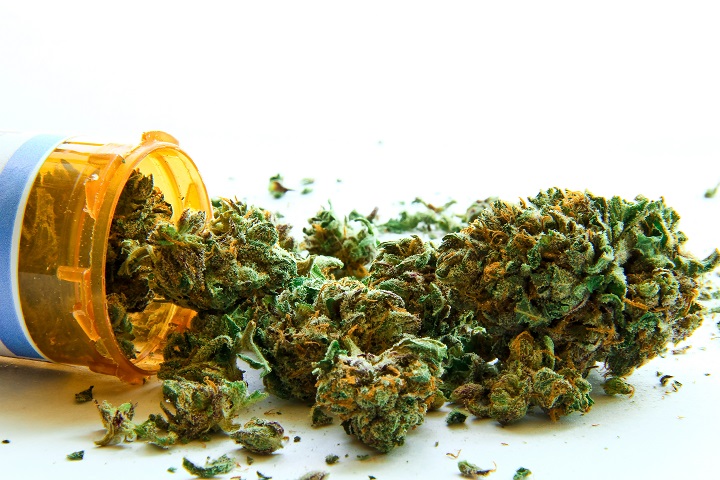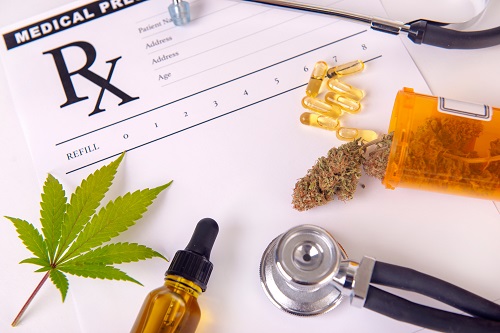At All Natural MD, we aim to provide you with the most up-to-date and relevant information about medical marijuana. As a well-established medical cannabis clinic in Florida with nearly 20,000 patients benefiting from medical cannabis, we understand the importance of navigating the complexities of integrating medical marijuana into your treatment plan, especially if you are already taking prescription medications.
When it comes to using medical marijuana alongside prescription drugs, it’s crucial to understand potential interactions to ensure safety and effectiveness. This blog will guide you through the key aspects of drug interactions involving medical marijuana and prescription medications.
Understanding Drug Interactions
Drug interactions occur when one substance affects the function or efficacy of another. These interactions can either amplify or diminish the therapeutic effects or lead to unexpected side effects. In the case of medical marijuana, its active compounds—primarily THC (tetrahydrocannabinol) and CBD (cannabidiol)—can interact with various prescription medications.
The Role Of THC And CBD
THC (Tetrahydrocannabinol)
THC is the psychoactive component responsible for the “high” associated with marijuana. It can interact with medications that affect the central nervous system, such as:
- Antidepressants: Combining THC with certain antidepressants can either enhance or reduce their effects, leading to altered mood or increased risk of side effects.
- Antipsychotics: THC can interact with antipsychotic medications, potentially diminishing their effectiveness and exacerbating symptoms.
CBD (Cannabidiol)
CBD is non-psychoactive and is known for its therapeutic benefits, including anti-inflammatory, anti-anxiety, and neuroprotective effects. However, CBD can inhibit enzymes in the liver responsible for metabolizing various medications, such as:
- Blood Thinners: CBD can increase the levels of blood-thinning medications, leading to a higher risk of bleeding.
- Anti-Seizure Medications: While CBD is effective in treating certain types of epilepsy, it can also interact with anti-seizure drugs, necessitating careful monitoring and dosage adjustments.
Common Drug Interactions With Medical Marijuana
Pain Medications
Medical marijuana is commonly used for pain management, but it can interact with opioid painkillers. Combining the two can enhance pain relief but also increase the risk of sedation and respiratory depression. It’s essential to consult with your healthcare provider to determine the appropriate dosage and monitor for potential side effects.
Anti-Anxiety Medications
Both THC and CBD have anxiolytic properties, but combining them with prescription anti-anxiety medications like benzodiazepines can lead to excessive sedation or drowsiness.
Blood Pressure Medications
Medical marijuana can affect blood pressure, either raising or lowering it depending on the dosage and individual response. When combined with blood pressure medications, it can lead to unpredictable changes in blood pressure levels. Regular monitoring and communication with your healthcare provider are essential if you have hypertension and are using medical marijuana.
How To Safely Integrate Medical Marijuana With Prescription Medications
- Consult with Healthcare Providers
At All Natural MD, our priority is your safety and well-being. Always consult with our professionals before starting or altering your treatment regimen. We can help you understand potential drug interactions and guide dosage adjustments.
- Start Low, Go Slow
When introducing medical marijuana into your treatment plan, start with a low dose and gradually increase it under medical supervision. This approach minimizes the risk of adverse interactions and allows you to assess how your body responds.
- Monitor For Side Effects
Be vigilant about any changes in your symptoms or the emergence of new side effects. Common signs of drug interactions include dizziness, excessive drowsiness, changes in appetite, and mood alterations. If you experience any concerning symptoms, contact your healthcare provider immediately.
- Keep A Comprehensive Medication List
Maintain an up-to-date list of all medications you are taking, including prescription drugs, over-the-counter medications, supplements, and medical marijuana products. Share this list with all your healthcare providers to ensure coordinated care and avoid potential interactions.
Conclusion
Navigating the complexities of drug interactions between medical marijuana and prescription medications is essential for safe and effective treatment. At All Natural MD, we are committed to guiding you through this process with professional evaluations and personalized care. By consulting with us, starting with low doses, monitoring for side effects, and maintaining comprehensive medication records, you can safely integrate medical marijuana into your treatment plan.
If you have any questions or need assistance with your medical marijuana evaluation, please don’t hesitate to contact us at All Natural MD. We’re here to support your journey to wellness.
For more information about medical marijuana prescriptions and how to become a patient at All Natural MD, visit our website or call us today at (800) 250-6737 for more information!



